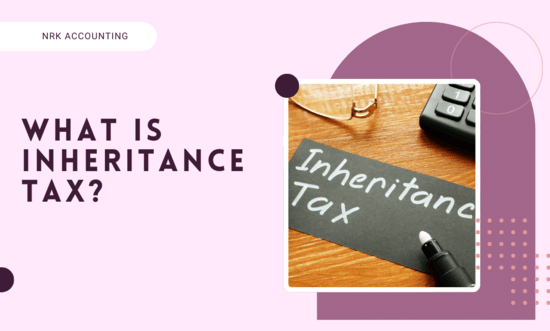What is Inheritance Tax? A Simple Guide for Understanding
Inheritance? It’s not something most of us like to think about. But the last thing you want is for your loved ones to be saddled with a hefty tax bill on top of their grief. That’s where inheritance tax comes in – and trust us, it can get complicated.
Here’s what we’ll untangle for you:
- What inheritance tax is (and how it differs from estate taxes)
- Who’s liable to pay
- How to calculate potential inheritance tax costs
At NRK Accounting, we’ve helped countless families navigate these complex rules. With decades of experience, we take the stress out of tax planning, so you can focus on what matters most.
What Is Inheritance Tax? The short answer…
Here’s the good news: Canada doesn’t have a direct inheritance tax. That means if someone leaves you money or assets in their will, you won’t get a surprise bill from the government.
But hang on… it’s not quite that simple. Let’s break down how taxes work when someone passes away:
- It’s Not Inheritance Tax, It’s “Deemed Disposition”: Think of this as the final tax return of the deceased person. The government assumes they’ve sold all their assets at market value on their date of death.
- Capital Gains Kick In: If those assets (property, investments, etc.) have increased in value, that increase is considered capital gains. Those gains get taxed, reducing the estate’s value before it’s passed on to you.
- The Executor Pays: The person responsible for handling the estate ensures these taxes are paid before anything is distributed to beneficiaries (that’s you!).
Example: Your grandparent’s cottage was worth $200k when they bought it, it’s now worth $600k. That $400k increase could be taxed as capital gains, eating into your inheritance.
Need help making sense of this? NRK Accounting specialists are here to walk you through potential tax implications and ensure your inheritance is maximized.
Who’s Liable to Pay?
Okay, so there’s not a straightforward “inheritance tax”, but that doesn’t mean everyone’s off the hook. Here’s who could potentially face a tax bill due to an inheritance:
- The Executor: This is the person named in the will as responsible for managing the estate. They’re on the line to make sure any taxes owed by the deceased are paid before distributing assets. Get this wrong, and they could be personally liable!
- Beneficiaries (in certain cases): If the deceased owned assets that have appreciated in value (think stocks or real estate), those potential capital gains taxes will come out of the estate. This reduces the amount beneficiaries receive.
- Spouses/Common-law Partners (a special exception): Canada has “rollovers” which allow assets to pass to spouses tax-free. This is meant to provide financial support – but does have later implications when the surviving spouse passes away.
It’s not just about who pays right now. Complex estates or investments might have tax consequences down the road. NRK Accounting can provide a full picture, not just a quick fix.
How to Calculate Potential Inheritance Tax Costs
It’s important to note, there’s no one-size-fits-all answer here. But let’s walk through a simplified process to get an idea of what you might be facing:
- Gather the Numbers
- The FMV (Fair Market Value) of Assets: What are things worth today, not what was originally paid (this is where real estate appreciation can really sting).
- Adjusted Cost Base (ACB): The original purchase price of investments or property.
- Outstanding Debts/Expenses: Mortgages, probate fees, and any other costs associated with the estate.
- Do the Math:
- For each significant asset, subtract the ACB (original price) from the FMV (today’s value). This is your potential capital gain.
- Total up the capital gains from across the estate.
- Multiply that total by your province’s capital gains tax rate. This gives you a rough idea of the tax bill.
- Don’t Forget:
- Only 50% of capital gains are usually taxed.
- Each province has a different tax rate.
- Complex situations often need professional guidance!
Feeling Informed About Inheritance Tax? Let’s recap!
You’ve got the lowdown on how inheritance is taxed. Now you understand it’s not about who gets the money, but rather what the deceased owns at the time of their passing.
Key takeaways:
- No “inheritance tax”, but there are taxes
- “Deemed disposition” is the key concept
- Capital gains can seriously impact an estate
- The executor has a big responsibility
- Spouses have special considerations
Inheritance matters are rarely simple. NRK Accounting can handle the numbers and the complexities, providing peace of mind for you and your family, ensuring the wealth you’ve inherited stays where it belongs – with you.

